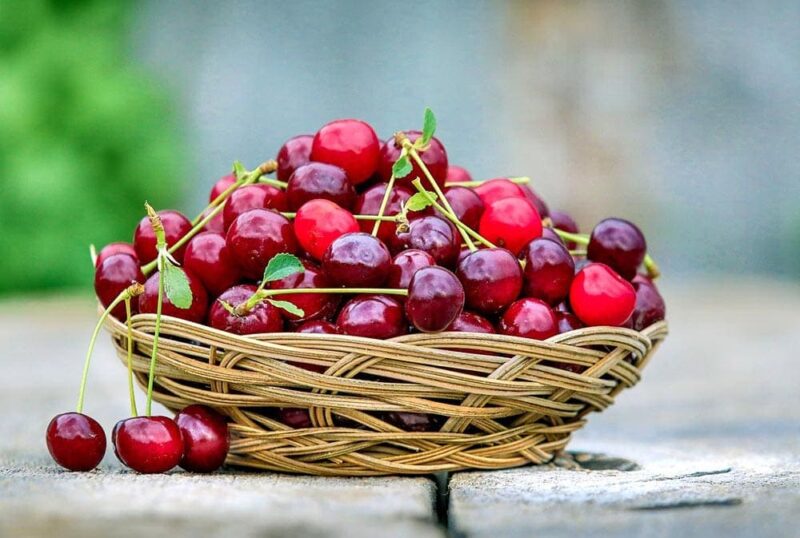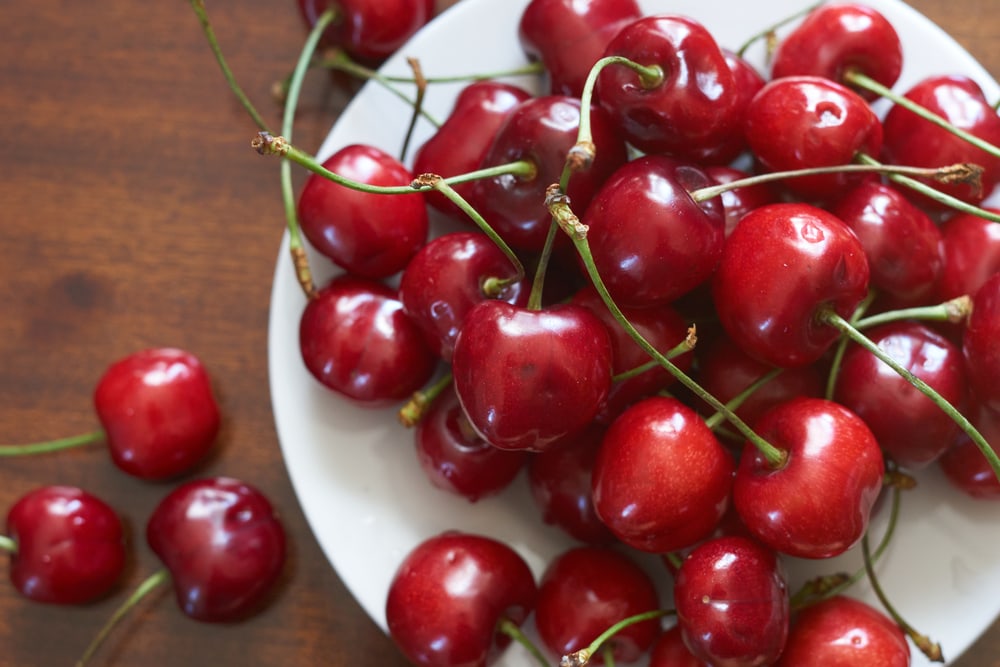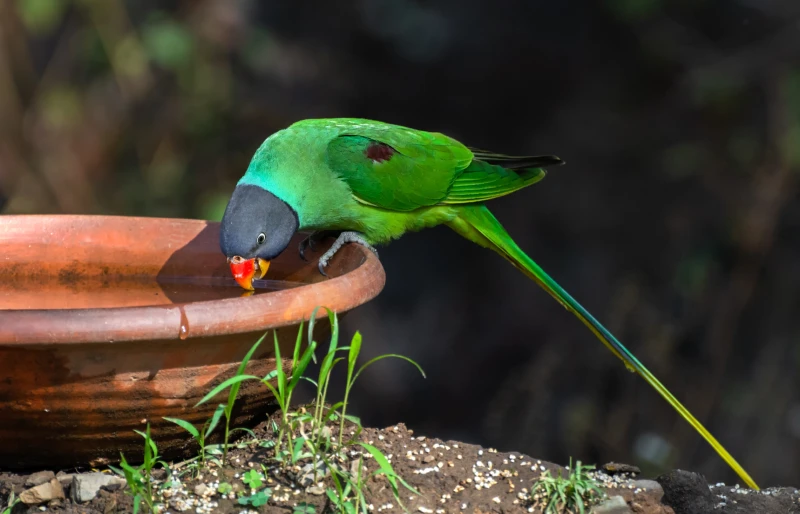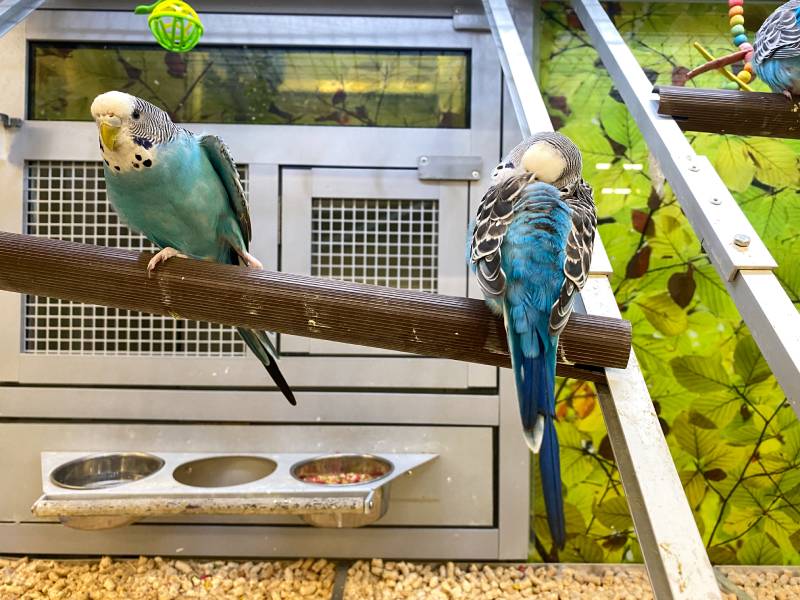Can Parrots Eat Cherries? Vet Reviewed Nutrition Facts
Updated on

An important part of keeping your parrot healthy involves making sure they are on the right diet. In the wild a parrot’s diet will depend on their species and where they live, but usually includes insects, nuts, seeds, leaves, fruit, and vegetables. For the most part, domesticated parrots can share healthy fruit snacks with you, including cherries.
Although cherries that have had their pits removed are a safe treat, they should not replace your parrot’s regular food and should only be offered in moderation.
Are Cherries a Healthy Treat for Parrots?
Not only are cherries colorful, tasty, and juicy, but they contain some important vitamins and minerals that your parrot needs to thrive. However, it’s important to remember that cherries should only ever make up a small portion of your pet’s diet so their nutritional benefits to your parrot will be limited. Vitamins and minerals in cherries include:
- Vitamin A is essential for the health of your parrot’s skin and feathers. It also contributes to good eye health. Good vision is essential for the survival of a parrot.
- Vitamin C is not essential in a parrot’s diet as most can make their own. However, additional vitamin C in the diet may boost your parrot’s immune system if they are unwell.
- Calcium is needed for healthy bones, heart and for muscle function. Females also need it for egg formation.
- Potassium is required for normal cell function.
- Fiber helps keep your parrot’s digestive system healthy
- Magnesium helps your parrot’s body absorb calcium effectively and is important for their nervous system and muscles.
- Iron is needed for hemoglobin, which is the oxygen carrying molecule in red blood cells.
Cherries also contain other antioxidants, which can contribute to good health.

Can Cherries Be Unsafe for Parrots?
If you’ve ever eaten cherries, you’ll know that once you’ve had one, it can be hard to stop because they’re so sweet and tasty. Your parrot will likely feel the same way, so you’ll need to only give them one or two occasionally, because moderation is key. As a general rule, fruit should not exceed around 5% of their overall food intake.
They’re High in Sugar
Cherries are one of the many fruits that have a high sugar content. When eaten often and in large quantities, your parrot can excess weight. Remember that pet parrots will not be anywhere near as active as their wild counterparts, so it’s important they don’t overeat high sugar foods and gain too much weight. There are many health risks associated with obesity including atherosclerosis, fatty liver disease, cardiovascular disease and osteoarthritis.
The Pit Is a Problem
Cherries should have their pits removed before they’re given to a parrot because the pit contains cyanide and should be avoided.
Removing the pit is easy to do. Cut the cherry in half and pop out the pit. The halves will be easier for your parrot to hold onto, too.
Pesticides
Many crops get sprayed with pesticides to kill insects that feast on the fruit or vegetables. These pesticides are harmful to pets, and if they ingest a lot of them, health problems can arise. Be sure to wash your cherries under running water, making sure to rub the fruit to remove any pesticides from it before cutting it in half and giving it to your parrot. Washing the cherries first will also remove any dirt and germs.

A Parrot’s Diet
Individual parrot species have different nutritional needs depending on their physiology and what they would naturally eat in the wild. As a general guideline, pellets that are designed for parrots should make up the bulk of their diet, leaving around 30% of the diet to be made up of fresh foods like vegetables and fruit, cooked whole grains, sprouted legumes, nuts and seeds. Always speak to your avian vet for specific dietary advice relating to your parrot.
A few healthy fresh food options most parrot species can enjoy are:
- Alfalfa
- Broccoli
- Carrots
- Bell peppers
- Green beans
- Kale
- Peas in the pod
- Pumpkin
- Spinach
- Butternut squash
- Sweet potato
Foods to Avoid Feeding Your Parrot
Although there are a lot of fresh food options to feed your parrot, there are also a few dangerous options.
- Avocado
- Alcohol
- Cocoa
- Caffeine
- Raw mushrooms
- Fruit pits
- Dairy
Conclusion
Parrots can enjoy cherries in moderation. However, due to their high sugar content, eating too many can lead to excess weight gain and associated health risks. Healthier alternatives are vegetables, particularly those with deep colors because they are the most nutritious for parrots. A parrot’s diet should consist primarily of parrot pellets as well as some safe fresh foods. For questions relating to your individual pet parrot’s ideal diet, consult with your avian veterinarian.
Featured Image Credit: klimkin, Pixabay












